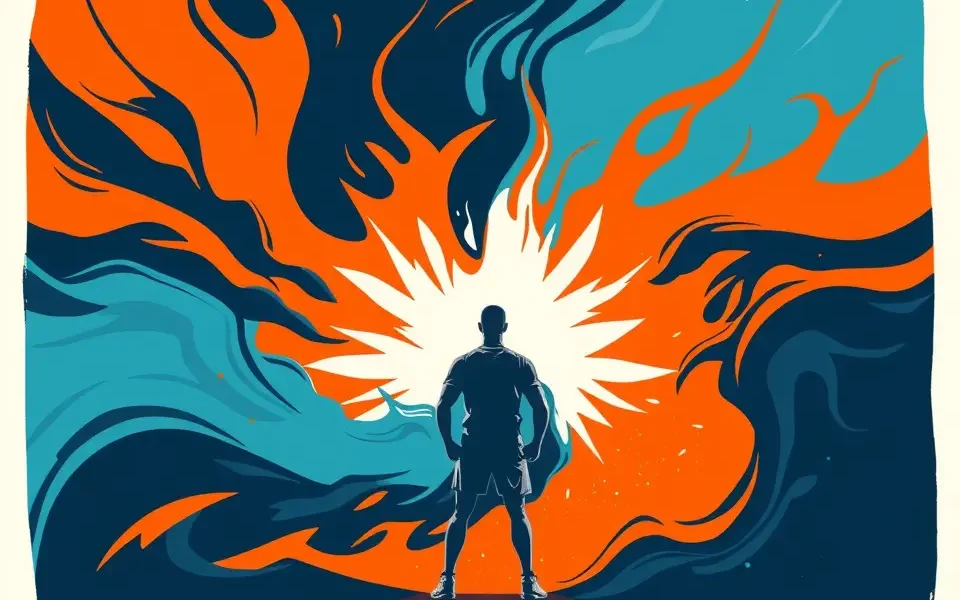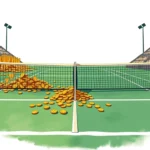Elena Rybakina, the 2022 Wimbledon champion, has found herself in a whirlwind of controversy surrounding her coaching choices, particularly her relationship with long-time coach Stefano Vukov. Despite a WTA investigation resulting in a one-year ban for Vukov due to allegations of verbal and psychological abuse, Rybakina has remained steadfast in her support, leading to a series of team adjustments and raising questions about player-coach dynamics in professional tennis. Let’s delve into the key decisions and the saga that has gripped the tennis world.
The Vukov Controversy: A Storm Brews
The partnership between Rybakina and Vukov, which began in 2019, saw the Kazakh star rise to prominence, culminating in her historic Wimbledon victory. However, following the US Open in 2024, allegations of mistreatment surfaced, leading to a split between the two. The WTA launched an investigation, and Vukov was subsequently handed a provisional suspension, which was later upheld as a one-year ban from official coaching roles.
The allegations against Vukov included claims of verbal and psychological abuse, with reports suggesting he belittled Rybakina, controlled her training environment, and even dismissed her illness as an excuse. One particularly jarring accusation revealed that Vukov allegedly said Rybakina would “still be in Russia picking potatoes” without him, sparking outrage within the tennis community.
Barbara Schett, a former WTA player, drew parallels between Rybakina’s situation and past instances of abuse within the sport, citing the fear of personal repercussions as a deterrent for many players to speak out. She recounted her own fears of Jelena Dokic’s father, who subjected his daughter to years of abuse, admitting that she would likely have stayed silent due to fear for her life.
Rybakina’s Defiance: Standing by Her Coach
Despite the serious allegations and the WTA’s ban, Rybakina has consistently defended Vukov, asserting that he never mistreated her. This unwavering support led to her re-hiring Vukov in early 2025, a decision that stunned the tennis world and drew significant backlash.
“Well, first of all, as is usual with every situation, I do not want to talk about what will happen next, but I can definitely assure you that I do not agree with many things that the WTA is doing regarding my relationship with Stefano,” Rybakina stated. “As I have said before, I have never filed any complaints or anything similar against anyone, I have always maintained that he never mistreated me, that’s on one hand.”
Rybakina’s decision to stand by Vukov, despite the controversy, highlights the complex dynamics and power imbalances that can exist in long-term player-coach relationships. It also underscores the challenges faced by players who may be hesitant to speak out against their coaches due to fear of repercussions or a belief that the coach’s methods, however harsh, are ultimately beneficial to their performance.
A Coaching Merry-Go-Round: Team Adjustments
Rybakina’s controversial coaching situation has led to a series of team adjustments in recent months. Following her initial split with Vukov, she hired Goran Ivanisevic, former coach of Novak Djokovic, in late 2024. However, their partnership was short-lived, ending after the 2025 Australian Open.
“After our trial period that finished with Australian Open, I wish Elena and her team best of luck moving forward,” Ivanisevic posted on social media.
With Vukov suspended and Ivanisevic gone, Rybakina added Davide Sanguinetti to her team in early February. Sanguinetti, a former coach of Dinara Safina, noted that he would have no problem working alongside Vukov, despite the ban.
Adding to the complexities, Rybakina’s long-time fitness coach, Azuz Simcich, also stepped away from the team in late February, announcing his departure after a successful three-year partnership.
Just a month and a half later, Rybakina welcomed Aldo Chiari, a seasoned professional with over two decades of experience working with elite athletes, as her new strength and conditioning coach, just as the clay season commenced.
The Impact on Rybakina’s Performance: A Struggle for Consistency
Since re-hiring Vukov, Rybakina’s performance has been inconsistent, leading to questions about the impact of the coaching controversy on her game. She has struggled with fitness, retiring from the US Open, underperforming at the WTA Finals, and crashing out poorly in Indian Wells and the Miami Open.
At the Miami Open, her loss to Ashlyn Krueger further highlighted her inconsistent play. Rumors have circulated that Vukov has been working with Rybakina at local private training sites, despite his WTA ban, raising concerns about the legality of those suspensions.
“At Miami, her loss to Ashlyn Krueger made clear once more her inconsistent play since Vukov was reappointed,” one report noted. “Rumors circulated that he worked with Elena Rybakina at local private training sites beyond the WTA tour, regardless of Vukov’s prohibition.”
The WTA’s Response: Upholding the Ban
The WTA has taken a firm stance on the Vukov situation, upholding the one-year ban and denying him accreditation for tournaments. This has prevented him from being on-site with Rybakina during matches and practices, adding to the challenges of their coaching arrangement.
Despite the ban, reports suggest that Rybakina has continued to consult with Vukov, relying on him for guidance and support. This has raised questions about the effectiveness of the WTA’s ban and the extent to which it can truly prevent a coach from influencing a player’s career.
Looking Ahead: The Clay Season and Beyond
As Rybakina embarks on the clay season, all eyes will be on her performance and how she navigates the ongoing coaching controversy. She is set to compete at the Madrid Open, the Rome Open, and the French Open, where she will face tough competition and intense scrutiny.
With a new strength and conditioning coach in place, Rybakina will be hoping to improve her fitness and consistency, and to put the coaching drama behind her. However, the Vukov situation is likely to remain a talking point throughout the season, and it remains to be seen whether she can truly separate the off-court controversy from her on-court performance.
A Broader Issue: Player-Coach Dynamics in Tennis
Rybakina’s coaching saga has shone a spotlight on the broader issue of player-coach dynamics in professional tennis. The power imbalance that can exist in long-term partnerships, the potential for abuse and exploitation, and the challenges faced by players who may be hesitant to speak out are all issues that have been brought to the forefront by this controversy.
As the WTA considers potential disciplinary action against Vukov, the situation raises critical questions about accountability in coaching and the support systems available to players dealing with these challenges. It also underscores the need for greater oversight of coaching relationships on the WTA Tour and a greater emphasis on player well-being.
Conclusion: Rybakina’s Gamble
Elena Rybakina’s decision to stand by Stefano Vukov, despite the allegations and the WTA ban, is a risky gamble that could have significant consequences for her career. While her loyalty and determination are admirable, the ongoing controversy and the potential for distraction could hinder her performance on the court.
Only time will tell whether Rybakina’s gamble will pay off. But regardless of the outcome, her story serves as a reminder of the complex and often murky dynamics that exist between athletes and those who guide their careers, and the importance of prioritizing player well-being and accountability in the world of professional tennis.








No Comment! Be the first one.